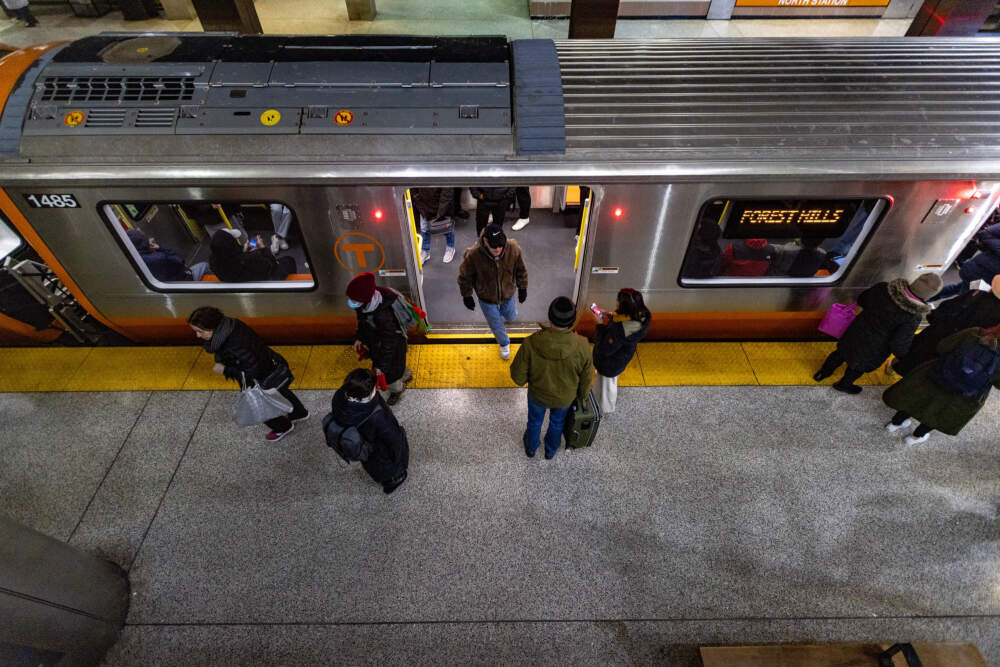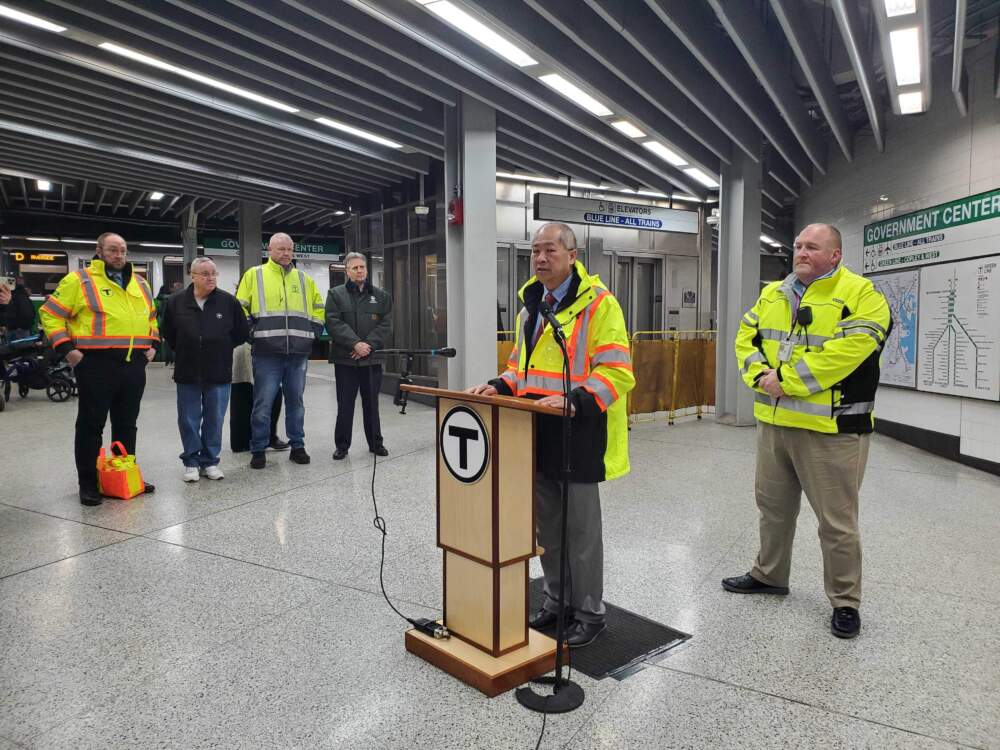Advertisement
T offers free subway rides for the afternoon as it investigates power failure

It was a tougher morning than usual for MBTA commuters Thursday, as a widespread power outage brought service to a halt on the Green, Blue and Orange lines. Thousands of commuters were stuck waiting on cold platforms, in stalled trains and in darkened stations.
It took nearly four hours to get service fully up and running.
At a noon press conference, MBTA General Manager Phillip Eng said the agency was investigating the cause of the outage. He said the T would offer free service Thursday afternoon on all three lines from 3 p.m. to 7 p.m., as a gesture to acknowledge the disruption caused for riders.
"We do appreciate that they're riding the T and our riders are paramount to us," Eng said, after arriving at Government Center station on a Green Line trolley.

The T's troubles began around 6:50 a.m., when a substation at North Station downtown lost power, according to Eng. That in turn affected power to signals, trains stations, lighting and the public address system on the Green, Blue and Orange lines. Eng said the T then began to move trains manually and "that's why people experienced longer waits for their trains."
MBTA crews found that one of seven feeder cables to the substation at North Station had failed, which led to the power problem, according to Eng. But it was still unclear what caused that feeder cable to fail.
Eng said the cable, which is owned by the T, is seven miles long and approximately 30 years old. The problem could have occured anywhere along the 7-mile cable between North Station and the T's South Boston power complex, according to the T.
The T did not have crews working in the area at the time of the failure, Eng said. It's possible the issue could have been caused by other work crews, or by a power surge or some other cause, according to the T.
Advertisement
"We believe this is external to us," Eng said. "There's always work going on across the system, and anything that could have impacted that feeder cable along those seven miles might have been the cause."
"It's not just the tracks. It's power. It's signals. It's all of the infrastructure that we rely on to make the T operate."
Brian Kane
Brian Kane, executive director of the MBTA Advisory Board and a former T manager, said the power outage is a sign of broader problems the system needs to address.
"It also speaks to the fact that it's not just the tracks. It's power. It's signals," Kane said. "It's all of the infrastructure that we rely on to make the T operate, none of which has been adequately maintained for the last 30 years because of some disastrous policy decisions made by elected officials a long time ago."
Eng said the T was also in talks with its power providers, in case the trouble came on their end. Both National Grid and Eversource, in response to questions from WBUR, said they do not interact with the failed cable Eng cited.
The mystery is little solace to T riders, many of whom took to social media in the morning to complain and share video of passengers standing on crowded train platforms in sub-freezing conditions. One passenger posted a photo of a dark tunnel and an idle train with the words “We're like miners.”
While the trains were down, T spokesman Joe Pesaturo in a statement said, "The outage at North Station was unexpected, and it is one of the MBTA's primary power feeds." He said the T apologized for the inconvenience and disruption.
The MBTA, which oversees the nation’s oldest subway system as well as commuter rail, bus and ferry service, has come under intense scrutiny in recent years for a series of safety issues that led to a federal review and orders to fix the problem. It has been plagued by slow zones, the delayed delivery of new vehicles and a scramble to improve staffing.
In November, the T reported that it needs approximately $24.5 billion for repairs and replacements to its embattled network. The analysis is done every three to four years and is a $14.5 billion increase from the last one performed in 2019, officials said.
With reporting from The Associated Press.
This story has been updated with additional information from the MBTA.
This article was originally published on February 15, 2024.
